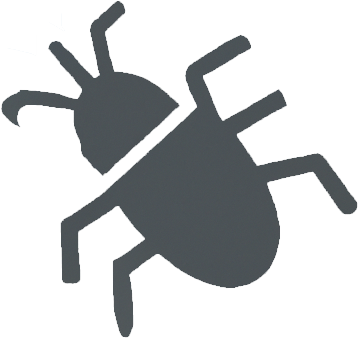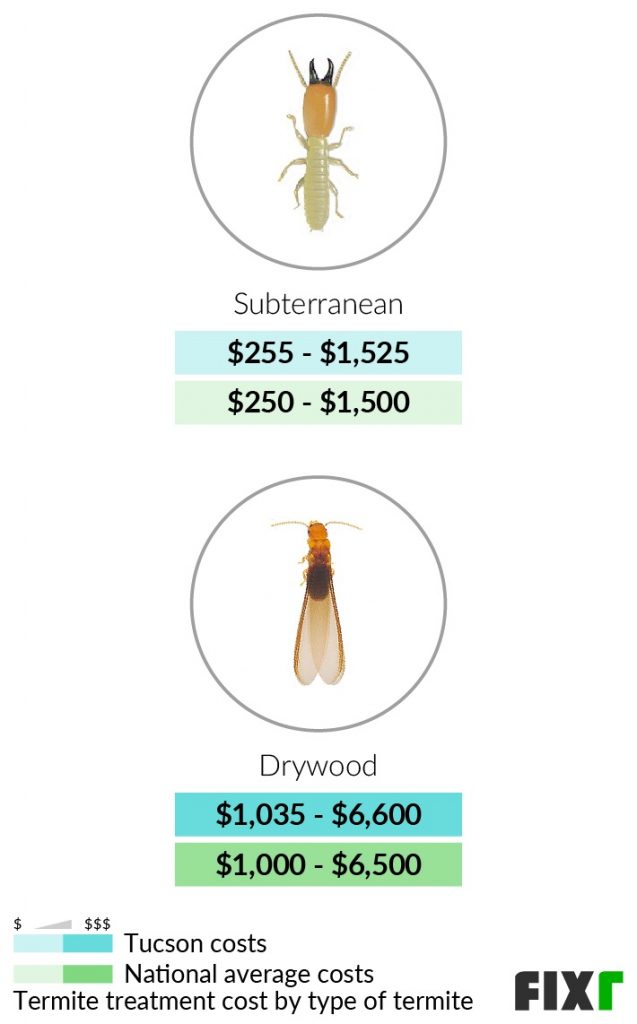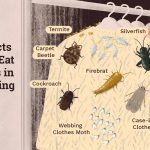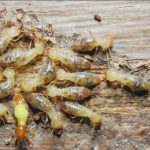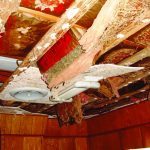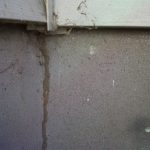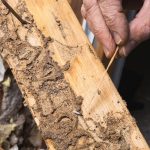Termites are a serious problem for homeowners in Arizona, with Tucson being no exception. Unfortunately, termites are a common, destructive pest in the Tucson area, and left unchecked, can cause serious damage to your home. This article will provide you with an introduction to termite infestations in Arizona and how to protect your home from these pests.
Types of Termites
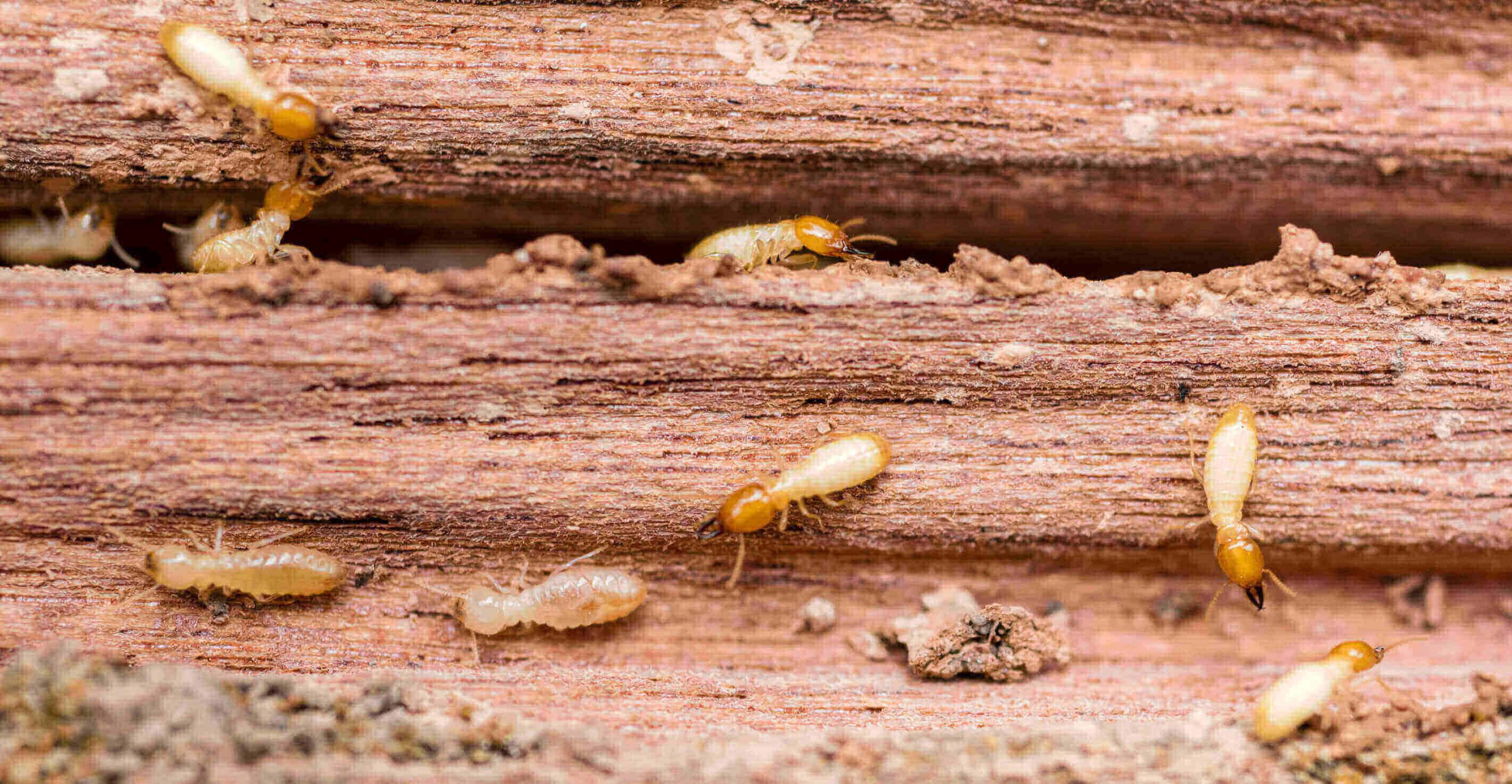
- Drywood Termites
- Subterranean Termites
- Formosan Termites
Drywood termites are found in warmer climates and are typically found in dry, undecayed wood. They can cause significant damage to structures and furniture as they are able to fly and establish new colonies in other locations. They do not require contact with the soil and can live in wall voids and attics.
Subterranean termites require moist soil to survive and therefore are found primarily in the southern United States. They cause significant damage to foundations and wood framing. They travel through mud tubes and build colonies in the soil.
Formosan termites are an invasive species that has become established in parts of the southern United States. They are very aggressive and can cause significant damage to structures in a short period of time. They can cause damage similar to that of subterranean termites.
Why Termites are Pests
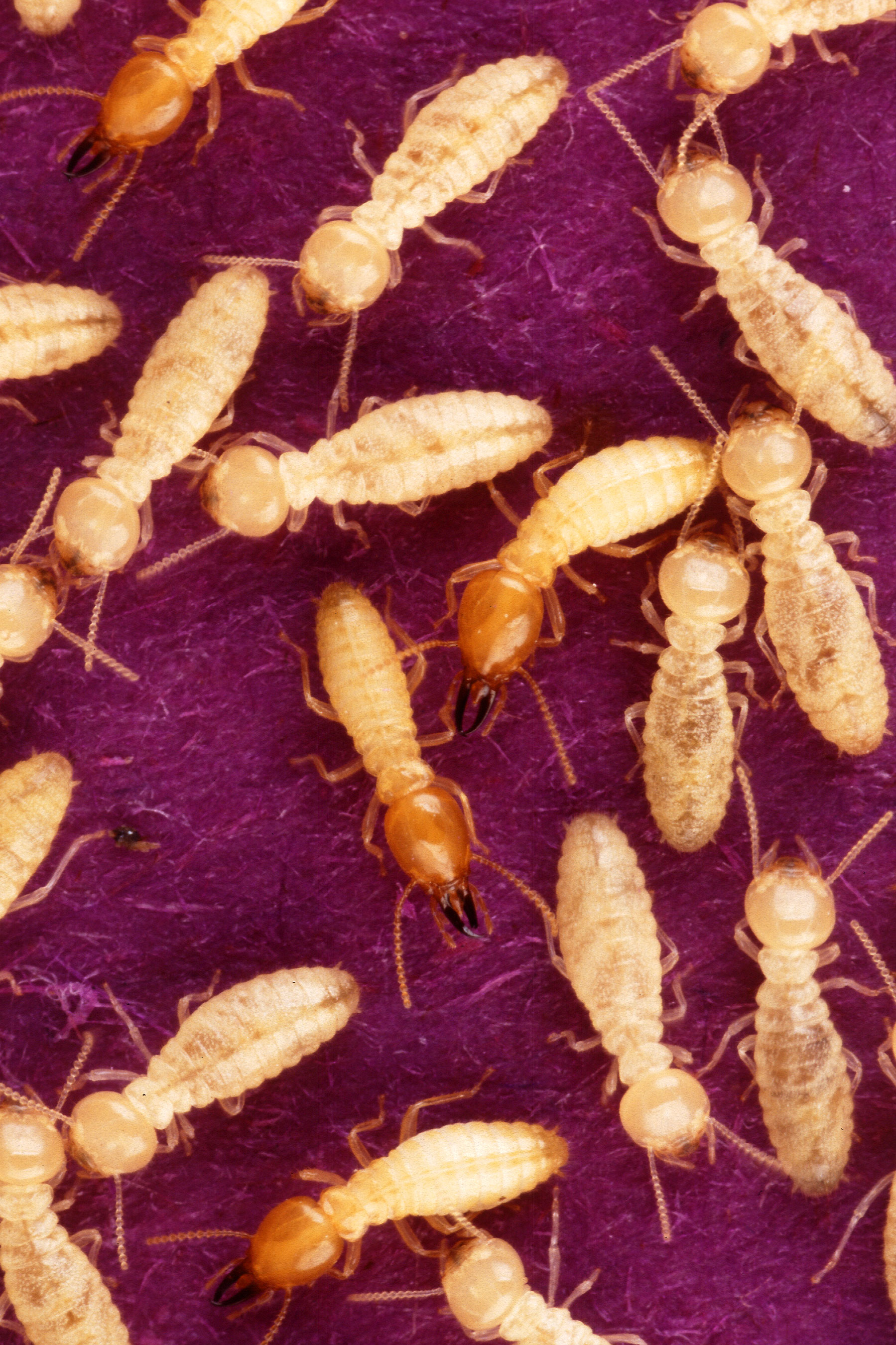
- Termites can cause extensive damage to wooden structures, including homes, furniture, and other wooden items.
- The presence of termites in an area can lead to decreased property values.
- Termites can cause health issues if they enter the home, such as allergies and respiratory problems.
- Termites can also contaminate food sources and spread disease.
- Termites can cause significant structural damage to a home, leading to expensive repairs.
- Termites can cause costly damage to crops and other agricultural products.
Signs of Termites in Tucson
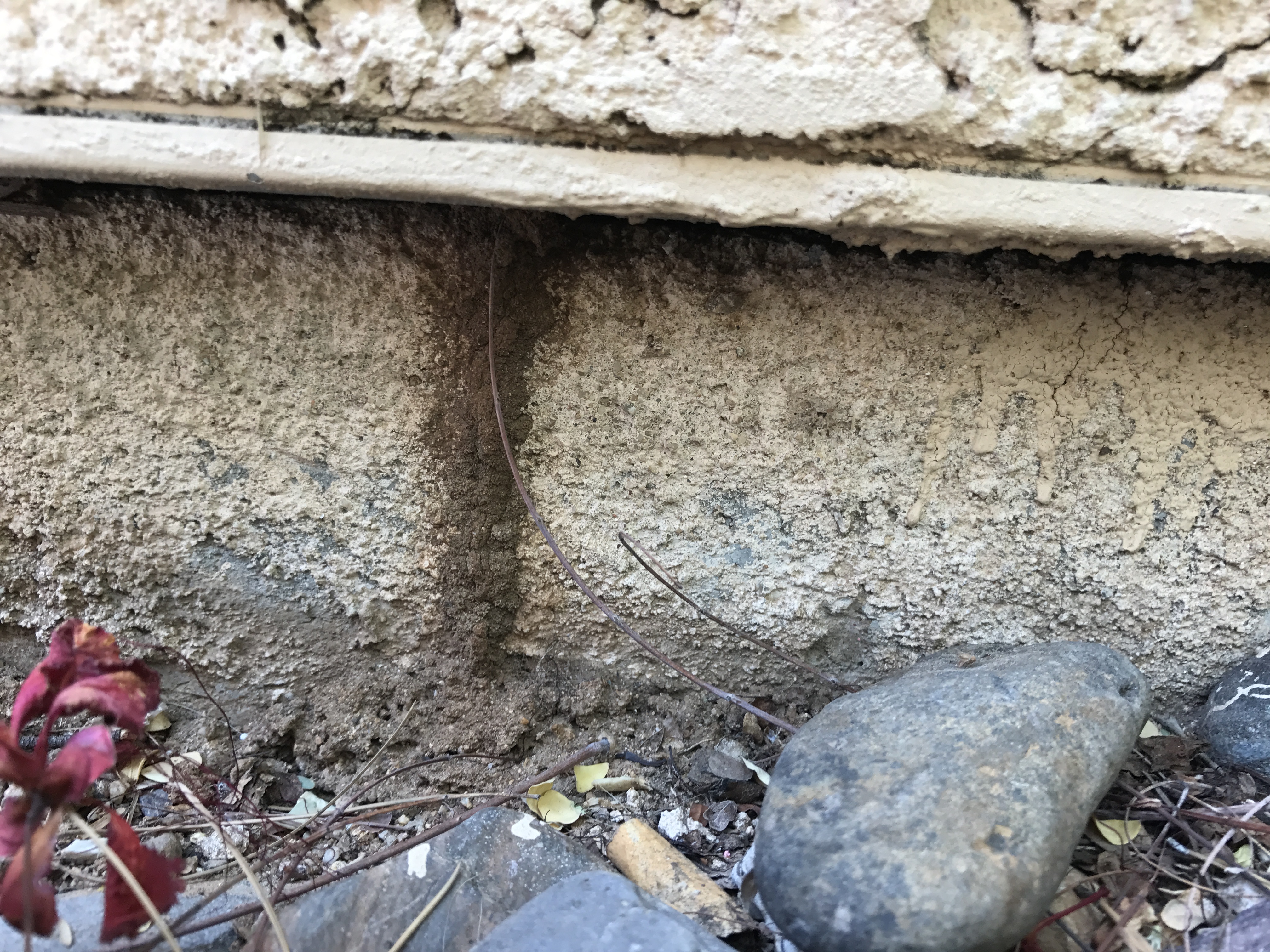
| Signs | Description |
|---|---|
| Mud Tubes | Termites build mud tubes to travel from their nest to their food source. These tubes are about the size of a pencil and can be found on the foundation and exterior walls of homes. |
| Discarded Wings | Termite swarms will leave discarded wings around window sills and door frames. These wings are left behind after the swarmers pair off and establish new colonies. |
| Wood Damage | Termites feed on wood and can cause significant damage to a home’s structure. Look for wood that appears to have been chewed on or have hollow spots. |
| Noise | Termites can make a faint rustling noise in walls or in the ceiling. This noise is usually heard in the evening or early morning. |
| Sawdust | Termites excrete sawdust-like material called frass. This material can be found near windowsills and doorways. |
| Bubbling Paint | Termites can cause bubbling or blistered paint on walls. This happens as the wood behind the paint is being consumed. |
Prevention of Termites in Tucson
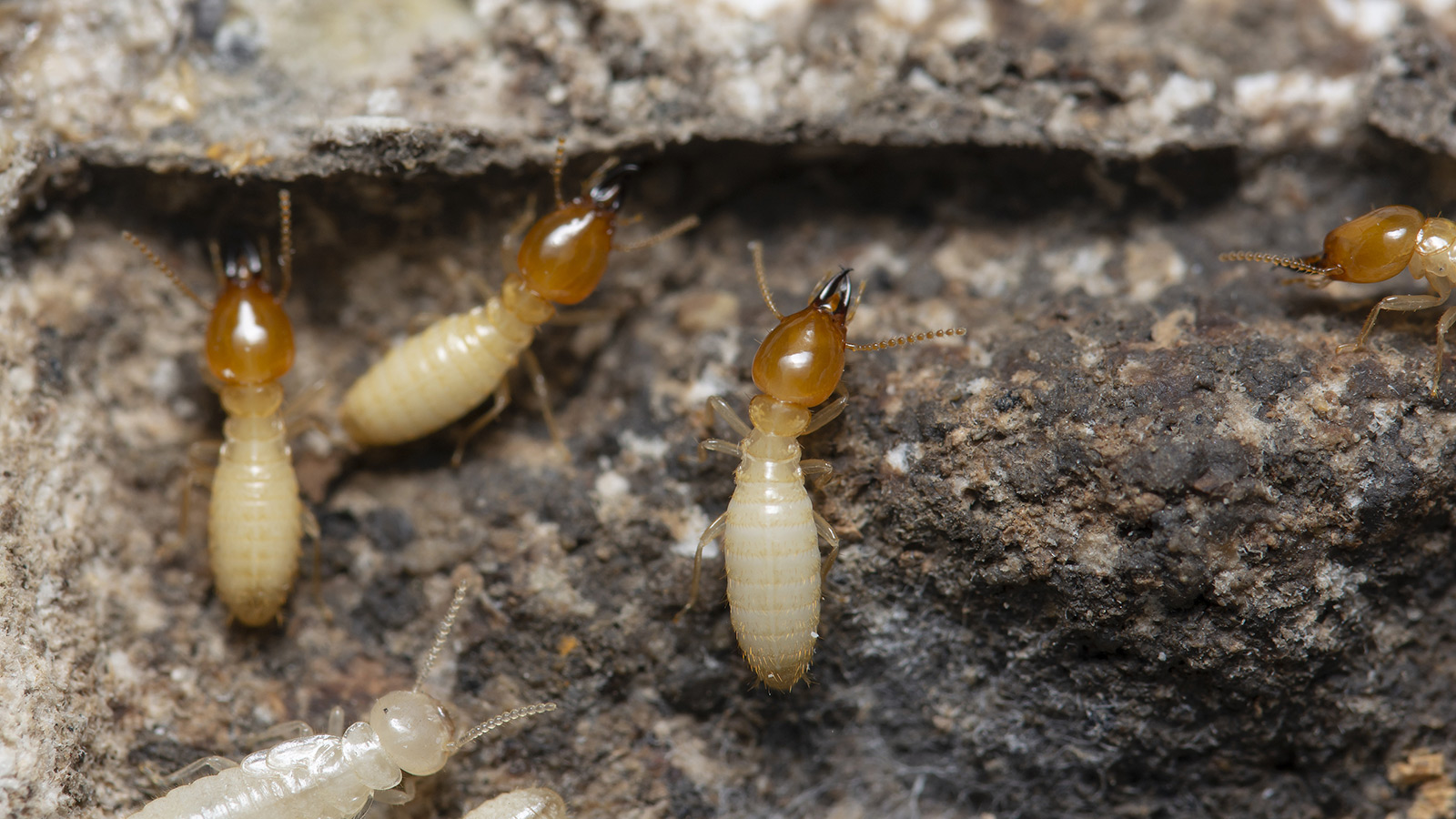
| Methods | Description |
|---|---|
| Inspection | Regular inspection of the house and property can detect any signs of termite activity |
| Barriers | Barriers such as chemical treatments, baiting systems, or physical barriers can be used to prevent termites from entering a property |
| Moisture Control | Moisture control is important for preventing termites as they need a moist environment to survive |
| Ventilation | Ventilation of the property, especially in areas where moisture can build up, is important to prevent termite activity |
| Cleanliness | Keeping the property clean and free of debris, like woodpiles, can help reduce the risk of termites |
In Tucson, regular inspections of the house and property should be conducted to detect any signs of termite activity. Barriers such as chemical treatments, baiting systems, or physical barriers can be used to prevent termites from entering the property. Moisture control is important as termites need a moist environment to survive. Ventilation of the property, especially in areas where moisture can build up, is important to prevent termite activity. Additionally, keeping the property clean and free of debris, like woodpiles, can help reduce the risk of termites.
Control of Termites in Tucson
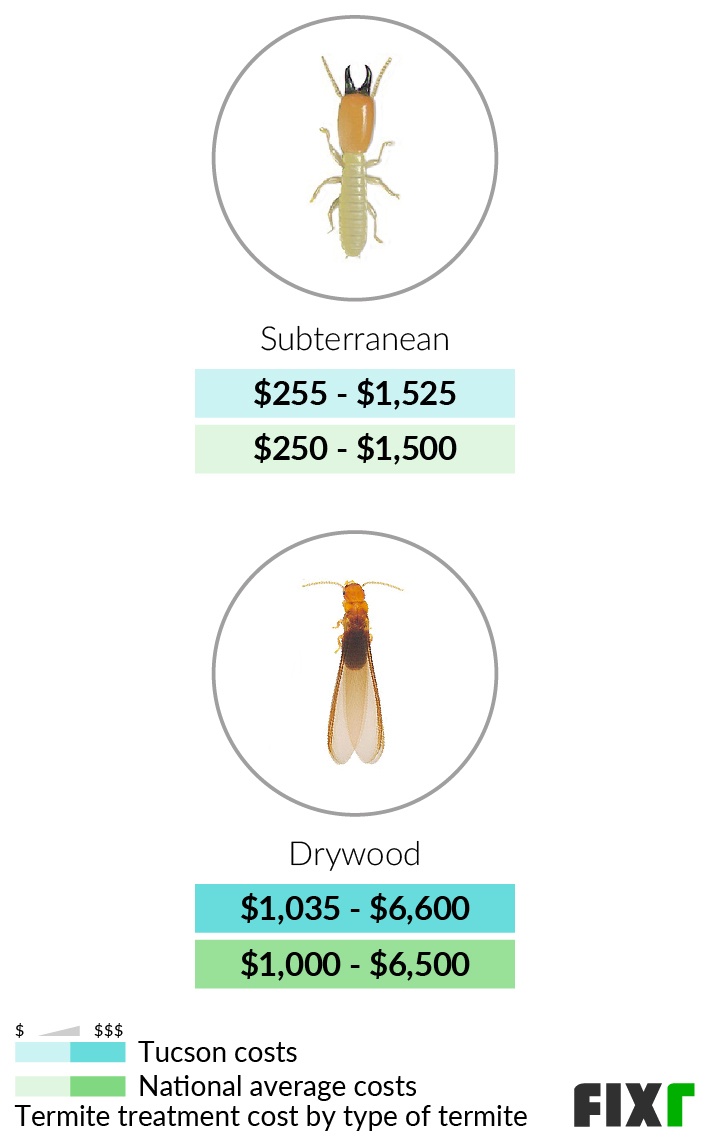
Termites can be a serious problem in Tucson due to the warm, dry climate. Termites can cause significant damage to wood structures, including homes and other buildings. They are also known to feed on organic materials such as paper, fabric, and even insulation.
The best way to control termites in Tucson is to inspect and treat your home regularly. Regular inspections help to identify termite activity before it becomes a serious problem. Treatment should be performed by a licensed exterminator and may include a variety of methods such as soil treatments, baiting systems, and fumigation.
It is also important to take preventative measures to avoid termite infestations. Proper ventilation and moisture control are essential, as termites thrive in moist environments. Keep wood debris, such as firewood, away from your home and store it in a dry location. Additionally, seal any cracks or crevices in your home’s foundation or walls to prevent termites from entering.
Inspecting and treating your home regularly are the most effective ways to control termites in Tucson. Taking preventative measures and avoiding a moist environment can help to prevent termite infestations. If you think you have a termite issue, contact a licensed pest control professional for assistance.
Pest Management and Control in Tucson

- Inspect the property for any signs of infestation before hiring a pest control company.
- Identify the type of pest and the extent of the infestation.
- Know the legal regulations for applying pesticides in the city of Tucson.
- Choose a pest control company that is licensed, insured and experienced in dealing with the specific pest.
- Ensure the pest control company keeps accurate records and follows safety precautions.
- Understand the pest control company’s guarantee and warranty policies.
- Be aware of the environmental impact of the pest control methods used.
- Consider non-chemical methods of pest control such as exclusion, trapping, and habitat modification.
- Make sure the pest control company follows all safety precautions and applies pesticides correctly.
Homeowner Responsibilities
| Responsibility | Description |
|---|---|
| Inspection | Homeowners should have their home inspected for termites annually or bi-annually, depending on the area’s climate and termite activity. |
| Prevention | Homeowners should take measures to prevent termites from entering their home. These measures include sealing cracks and crevices in the foundation, regularly inspecting the attic and other hidden areas, and removing wood debris from the property. |
| Damage Repair | If termites are found, the homeowner should have the damage repaired to prevent further damage. This includes repairing any damage to the home’s structure, replacing any damaged wood, and treating the area with an insecticide. |
| Maintenance | Homeowners should also take measures to maintain their home and prevent future infestations. Regular maintenance tasks include trimming trees and shrubs away from the foundation, removing wood debris from the property, and ensuring the gutters are clear of debris. |
Professional Pest Control Services
- Inspection of property to identify areas where termites are present
- Thorough assessment of the type of termite present in the area
- Application of the appropriate treatments and removal of existing infestations
- Installation of preventative measures such as termite baits and soil treatments
- Regular monitoring of the area to ensure that the problem does not reoccur
Frequently Asked Questions
What types of termites are found in Tucson?
Tucson is home to three main types of termites: drywood, subterranean, and desert dampwood. Drywood termites are typically found in attics, dry wood furniture, and other dry, high-moisture areas. Subterranean termites are the most common in Tucson, living underground and feeding on wood, paper, and other cellulose-based materials. Desert dampwood termites are found in areas of high moisture, such as around faucets, pipes, and other areas with excess moisture.
What are the signs of a termite infestation in Tucson?
Termites can cause significant damage to homes and other structures in Tucson. Signs of a termite infestation include: evidence of mud tubes on the outside of the building, wood that sounds hollow when tapped, visible damage to wood such as buckling or sagging, and the presence of small piles of sawdust or wings near windows or other access points. If you suspect a termite infestation, contact a professional exterminator to assess the situation and recommend a course of action.
What preventive measures can I take to protect my Tucson home from termites?
Homeowners in Tucson can take certain preventive measures to protect their homes from termites. These include inspecting the exterior and interior of the home for signs of infestation, sealing cracks and crevices to prevent entry, removing potential food sources such as woodpiles, and maintaining good drainage away from the foundation. Regular maintenance of the home and landscaping, such as trimming back shrubs and trees, can also help deter infestations. Scheduling an annual termite inspection by a professional pest control company is also recommended.
What treatments are available for termite control in Tucson?
Termites are a serious problem in Tucson and proper treatment is necessary for effective control. Treatments for termite control in Tucson include baiting systems, liquid treatments, foam treatments, and heat treatments. Baiting systems are an effective, long-term method of control, and involve placing bait stations around the perimeter of a home or building to attract and kill termites. Liquid treatments are an effective way to treat the soil around a home or building to eliminate termites. Foam treatments are used to treat wall voids and other hard to reach areas where termites may be present. Finally, heat treatments involve raising the temperature of a home or building to a level that is fatal to termites. All of these treatments can be used in combination to effectively eliminate termites in Tucson.
How can I tell if I have a termite infestation in my Tucson home?
Signs of a termite infestation in your Tucson home include buckling wood, hollow-sounding wood when tapped, mud tubes on exterior walls, small piles of sawdust near wood, and the presence of winged swarmers. If you suspect a termite infestation, it is important to seek professional treatment from a pest control specialist.
Conclusion
Termites can cause serious damage to Tucson homes, but homeowners can take steps to protect their property. A pest control professional can inspect the home and provide treatments to prevent or eradicate an existing infestation. Homeowners should also be vigilant about inspecting their homes for signs of termites and making repairs to areas where termites may gain access. Taking these precautions can help keep Tucson homes safe from termite damage.
